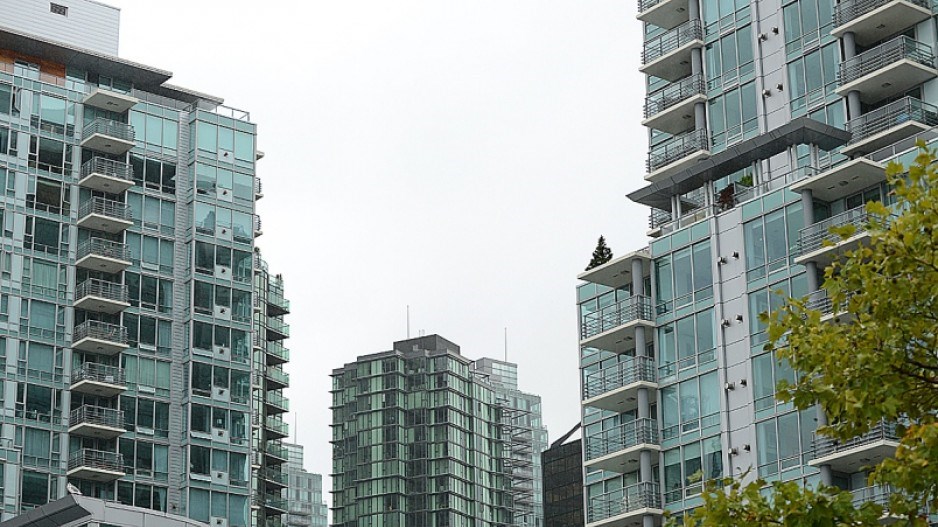What happened: Victoria is moving forward with regulatory changes to address the issue of rising strata insurance rates in B.C.
Why it matters: The B.C. government is intervening in a market where, due to a number of market forces, certain strata corporations have experienced double-digit and triple-digit increases to insurance premiums, while others have struggled to secure insurance at all.
The provincial government is proceeding with several regulatory changes to address a strata insurance market that has left a number of strata corporations in the province struggling to afford or even secure insurance.
Effective November 1, insurers will be required to provide strata corporations with 30 days' notice if they will not renew, or if they plan to materially change, an insurance policy.
"It's been an incredibly challenging situation for our clients and strata corporations in general in the province," said Cory Pettersen, president of Stratawest Management Ltd., and board member and past president of Strata Property Agents of BC, adding that many strata corporations experienced premium increases of between 40% and 100%, with very little warning.
"Industry stakeholders are appreciative that the government is taking steps to try to improve the situation for our clients, but it really remains to be seen whether or not these particular changes will do anything to increase capacity or reduce pricing in the market," he said.
As part of the changes, insurance agents will be required to disclose their commission amount to strata corporations, or risk potentially steep penalties of up to $25,000 for an individual and up to $50,000 for a corporation.
That is something insurance brokers such as BFL Canada were already willing to do, said Gareth McDonnell, regional vice-president, western region, for BFL Canada.
“The first thing that this legislation does is focus in on the party most capable of changing the timeliness for quotes – the insurers," McDonnell explained. “The market is really governed by insurance companies. They're the ones that set the prices, they're the ones that have changed their attitude towards stratas and they’re the ones that have caused the prices to rise.”
In March, BIV reported that a number of residential strata insurance providers had exited the Greater Vancouver market – an event that reduced the number of companies willing to supply that kind of insurance to the region. Demand for insurance remained the same, which helped push prices higher.
At higher prices today, McDonnell noted that more insurers are potentially willing to take on more risk, which would in turn help return more supply to the market.
“Realistically, the outlook is one of stability, maybe a little bit of upward pressure. And this is kind of typical within the insurance industry," he said.
Jim Allison, principal of Assertive Northwest Property Management Group and president of the Canadian Condominium Institute Vancouver Chapter, says the government's new requirements around renewal notice are "great and overdue," but cautions that they could also contribute to the market's supply and demand challenges.
"The challenge may be that the insurance companies (not the brokers) will see this as a frustration and reduce the volumes of insurance they wish to write in B.C. The less supply, the more demand, usually equates to higher pricing," he wrote to BIV.
The province has also banned strata property managers from receiving referral fees related to insurance transactions effective immediately.
Both Pettersen and Allison said very few strata management companies took referral fees prior to the change.
The changes follow an interim report released by the B.C. Financial Services Authority (BCFSA) earlier this year, which found that strata premiums have risen by approximately 40% on average throughout the province, year-over-year.
Allison told BIV that the regulatory amendments do not clearly address the affordability issue that persists.
"While this will help alleviate concerns of condo owners, I see nothing that will lead to lower prices," he explained, adding that there needs to be a focus reducing insurance claims, which he says is best achieved through proactive building maintenance.
"Mandatory depreciation reports, mandatory funding of depreciation reports and other changes in legislation can go a long way to improving the loss ratios for a strata and ultimately reducing insurance costs," he said.
Pettersen said that reviewing the legal requirement that strata corporations be insured to cover a building's full replacement value could also help introduce some price flexibility. Allowing a building to be insured for up to 80% of its full replacement value, for example, is an idea that has been kicked around, he says. If a catastrophic loss was within that 80%, the policy would kick in.
"Looking for that last 20% to have full replacement coverage – it can often be the most expensive piece," he said.
A final report from the BCFSA is expected this fall.
"The question is if this is all that the government is looking to do, or is more coming?" said Allison.
This article has been updated to include comments and quotes from various industry stakeholders.




